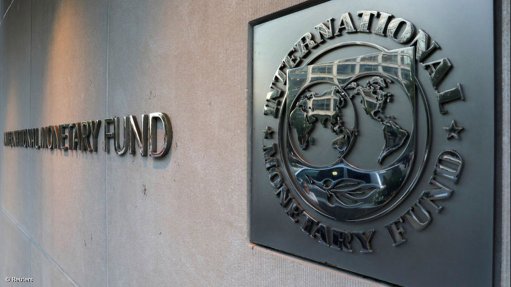Amie says antidumping duties will cost consumers
While many organisations have advocated for antidumping duties on chicken imported from certain countries, the Association of Meat Importers and Exporters (Amie) has questioned why the local industry pursues protectionism despite the increases in prices to the consumer.
The association explains that, when poultry tariffs were introduced in 2020, the South African National Consumer Union warned that these tariffs would push up chicken prices, which Amie says has in fact come true.
A bag of individual quick frozen chicken portions has risen from R63.87 to R77.61 – an increase of 9% in one year. Amie says this means that minimum wage earners will struggle to afford what is supposed to be an affordable source of protein.
“Now poultry producers are asking for even more tariff protection on certain chicken imports. Poultry price increases, which are already exceeding inflation, would make chicken completely unaffordable to the 40% of South African consumers that are already regarded as poor.
“These tariffs are aimed at cutting out imports completely and creating a monopoly in the local industry,” says Amie CEO Paul Matthew.
He admits that the industry does need help, but not protection. The association is of the view that imports do not harm the local industry, nor do tariffs or antidumping duties pose a solution to the industry’s problems.
Amie’s statement follows shortly after South African Poultry Association (Sapa) in February applied to the International Trade Administration Commission of South Africa (Itac) for antidumping duties on chicken imported from Brazil, Denmark, Ireland, Poland and Spain.
Sapa broiler GM Izaak Breitenbach said the association has proof that these countries have been selling frozen chicken portions into the South African market at prices lower than their production costs, or lower than they are selling the same product in their home markets, which is unfair competition for local producers and impacts on local jobs.
Breitenbach confirmed that these practices had been raised with the European Union’s (EU’s) representatives in South Africa and the EU export organisation Avec, following which Sapa decided that it would apply for antidumping duties.
The application sought duties based on the difference between what frozen chicken portions are sold for in the producer country and the lower export price of frozen chicken portions to South Africa.
Dumping margins of up to 201% had been identified, said Sapa.
Breitenbach noted the antidumping application was necessary as dumped imports were causing material injury to the domestic industry, despite the existing tariffs.
He explained that this was a continuing process because exporting countries develop ways to counter tariffs, including by lowering their prices.
As much as R6.1-billion leaves the country every year through poultry imports.
Breitenbach highlighted that the South African chicken industry was highly competitive by international standards, and "we produce chicken at a lower cost than EU countries. Yet EU countries continually dump chicken here because they will take any price they can get for surplus chicken meat their markets do not want".
The problem had been exacerbated by Covid-19, he added, explaining that chicken-producing countries sit with overflowing cold storage facilities and were looking for markets to target with this surplus.
Itac would investigate the complaint before making a recommendation to Trade, Industry and Competition Minister Ebrahim Patel. The process was expected to take 12 months.
Trade movement FairPlay had also stated its hope that an effective antidumping tariff would be reached with urgency.
The organisation agreed that South African jobs are at stake and that the local industry has been constricted by predatory imports in that held-back expansion could have met increasing local demand for chicken.
The Poultry Sector Master Plan states that the local industry has stagnated as imports have risen by 400% over the past 20 years, and by 73% over the past five years.
Article Enquiry
Email Article
Save Article
Feedback
To advertise email advertising@creamermedia.co.za or click here
Announcements
What's On
Subscribe to improve your user experience...
Option 1 (equivalent of R125 a month):
Receive a weekly copy of Creamer Media's Engineering News & Mining Weekly magazine
(print copy for those in South Africa and e-magazine for those outside of South Africa)
Receive daily email newsletters
Access to full search results
Access archive of magazine back copies
Access to Projects in Progress
Access to ONE Research Report of your choice in PDF format
Option 2 (equivalent of R375 a month):
All benefits from Option 1
PLUS
Access to Creamer Media's Research Channel Africa for ALL Research Reports, in PDF format, on various industrial and mining sectors
including Electricity; Water; Energy Transition; Hydrogen; Roads, Rail and Ports; Coal; Gold; Platinum; Battery Metals; etc.
Already a subscriber?
Forgotten your password?
Receive weekly copy of Creamer Media's Engineering News & Mining Weekly magazine (print copy for those in South Africa and e-magazine for those outside of South Africa)
➕
Recieve daily email newsletters
➕
Access to full search results
➕
Access archive of magazine back copies
➕
Access to Projects in Progress
➕
Access to ONE Research Report of your choice in PDF format
RESEARCH CHANNEL AFRICA
R4500 (equivalent of R375 a month)
SUBSCRIBEAll benefits from Option 1
➕
Access to Creamer Media's Research Channel Africa for ALL Research Reports on various industrial and mining sectors, in PDF format, including on:
Electricity
➕
Water
➕
Energy Transition
➕
Hydrogen
➕
Roads, Rail and Ports
➕
Coal
➕
Gold
➕
Platinum
➕
Battery Metals
➕
etc.
Receive all benefits from Option 1 or Option 2 delivered to numerous people at your company
➕
Multiple User names and Passwords for simultaneous log-ins
➕
Intranet integration access to all in your organisation

















